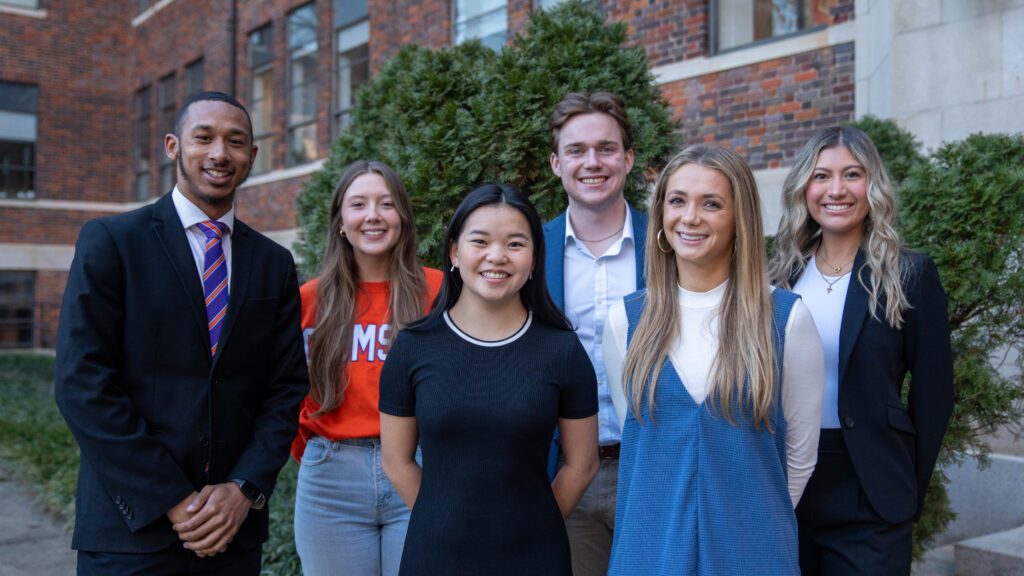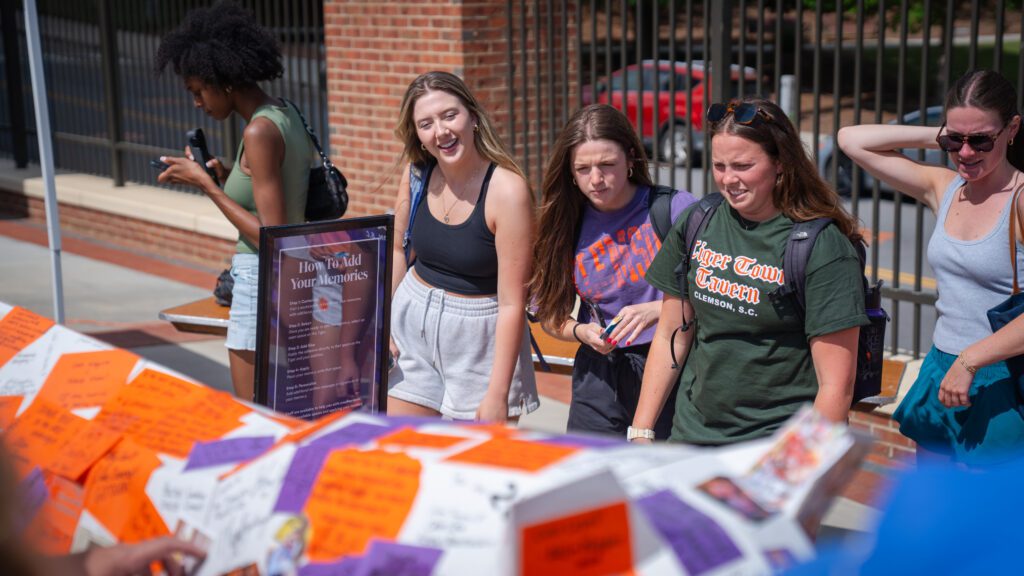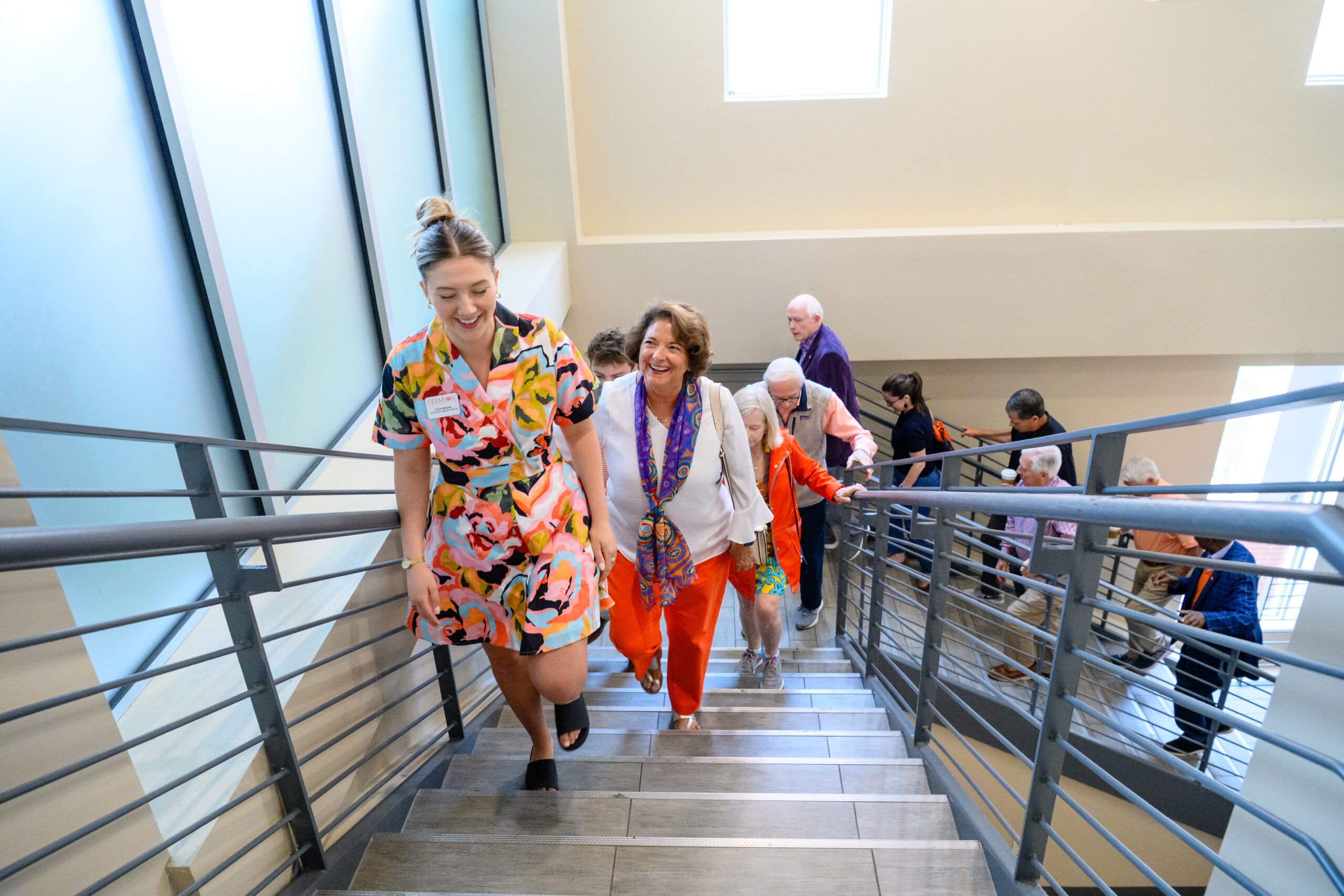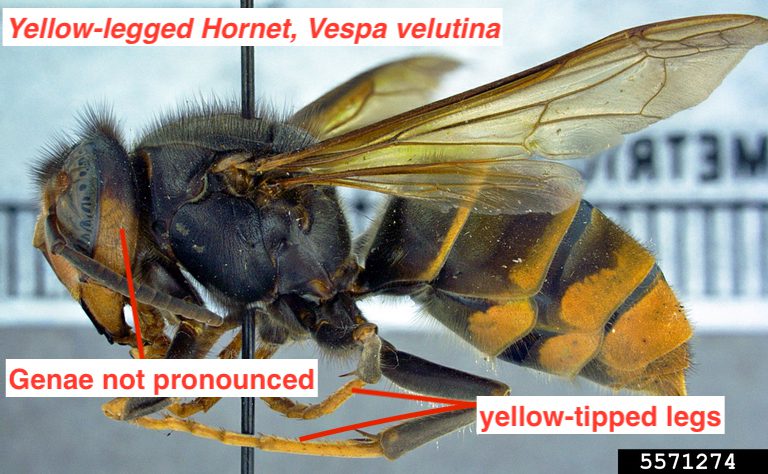Graduating senior Gracie McDaniel has one central piece of advice for incoming students — a mindset her own Clemson legacy directly embodies: “Invest in your Clemson future.”
The level of investment McDaniel — a senior agribusiness major, minoring in biological sciences and food science, from York, South Carolina — has poured into Clemson cannot be understated. Her involvements on and off campus have touched the lives of many, and her holistic experience is one she will never take for granted.
McDaniel’s choice to attend Clemson was dependent on several factors, but seeing her background reflected in one of the foundational characteristics of the University was what ultimately sealed the deal.
“Clemson’s founding as a land-grant institution was a huge draw for me, having grown up surrounded by agriculture in a very rural area,” she says.
She also attributes her choice of major — agribusiness — to her experiences in agriculture. Originally a biological sciences major on the pre-med route, she suddenly felt a calling to food science and nutrition, which eventually transformed into an interest in food systems as a whole and how they impact our health and well-being. Once she settled on agribusiness, she honored her original choices by incorporating them as minors.
McDaniel maintains a direct connection to the College of Agriculture, Forestry and Life Sciences (CAFLS) through her work as a CAFLS ambassador. In this role, she enjoys “representing the best college on campus” by giving tours to prospective students and their families.
“I love to introduce them to the faculty and staff who have become my family; my favorite part is showing them how this can be their future and assuring them that they can find a support network here very early on,” she says.

Another major way McDaniel has impacted the University is through her role as treasurer for Clemson Undergraduate Student Government (CUSG). In this position, she held responsibility for overseeing the Student Funding Board — a group of 15 undergraduate students who meet weekly to allocate around $2 million to various clubs and organizations across campus. She serves as a liaison between the Board, student organizations and CUSG, as well as University administration.
“I get to be the connector between all of those groups — student government is my way of touching a lot of campus,” McDaniel says. “Serving as treasurer, I am able to see over 500 clubs receive funding, so it’s kind of like I’m in all of them, to a degree.”
Looking back on her time in CUSG, McDaniel is most proud of her team’s educational outreach efforts over the past year, especially around annual funding time. During this period, the Student Funding Board is charged with allocating the majority of the budget, requiring them to meet with student organization representatives to hold discussions and answer questions. While past attempts to reach every single club on campus have fallen short, this year’s team — under McDaniel’s leadership — was able to facilitate an in-person, one-on-one meeting for every single club, effectively making each group aware of available resources.
Recently, McDaniel traveled with CUSG leaders to Washington, D.C. as a part of ACC Advocacy Days, where students had the opportunity to engage with state and national representatives in order to advocate for needs at the Clemson level. She also attended the 2024 ACC Leadership Symposium — a three-day conference aimed at engaging students in leadership training, professional development workshops and networking opportunities. During her trip to the University of Virginia, she was able to connect with individuals who handle funding for their respective student government organizations. She was given the opportunity to work on a case study with a focus group, discussing methods of increasing support for first-generation, low-income students. On this subject, she was able to cite Clemson’s FIRST Generation Success program, emphasizing the steps Clemson is already taking to provide the best experience possible for its students.
“Everyone from Clemson was so proud to be there and so happy to be a Clemson student; I felt like that was a really stark difference from the other institutions,” she says.
McDaniel echoes this sentiment of pride, and she encourages it in her fellow students. Serving as a residential community mentor (RCM) in DesChamps Hall, she aims to provide the most memorable and constructive experience possible for her first-year students in the Honors College. She facilitates a variety of events, most notably wellness workshops targeting the personal and academic stressors her residential students often face during the year.

“I think the biggest way to help is through a one-on-one personal relationship, so I host ‘Tiger Talks’ to build connections. I enjoy having very intentional conversations and knowing what issues students are facing on a typical Monday morning versus at the very end of the semester,” she says.
When asked what makes a good mentor, McDaniel answers, “I think a good mentor is someone who holds you accountable but is also a shoulder to cry on. You can’t be 100% comforting without enforcing expectations, and that’s something I try to balance as an RCM.”
McDaniel’s favorite memory from her time as an RCM was when she hosted a rotisserie chicken eating competition the week of Clemson football’s rivalry game against the University of South Carolina. In a building-wide competition, her floor won, and she will never forget the overwhelming pride and joy she felt, even in such a light-hearted context.
Beyond campus, McDaniel has held two important internships, giving her relevant professional experience in the field of agribusiness. Her first position was with Indigo Iris, a flower company located in the Upstate. She took advantage of the high level of autonomy she was granted in this role and chose to pursue product development. She built a subscription service for businesses — particularly women-centered institutions such as OBGYN offices, spas and hair salons. It served as her first introduction to an industry she had never previously considered: sales.
For her second internship, she returned home to work for the United States Department of Agriculture (USDA) in her county’s office. She worked with the disaster relief program to provide compensatory payment for farmers and livestock producers who suffered financial losses from natural disasters, such as a recent drought.
“I got to work with a lot of local folks I’ve known my whole life,” McDaniel says. “I’ve grown up with many of the producers and farmers that came through the door, so it was really rewarding to serve my local community in that way.”

These off-campus internships, as well as McDaniel’s Clemson experience as a whole, have ultimately prepared her to enter a new chapter with confidence.
“Clemson has given me so many technical skills through hands-on learning inside and outside the classroom, as well as soft skills like leadership, communication and time management.”
Upon receiving her diploma, McDaniel will move to Charleston to pursue a business development role, working in sales for a vegetation management company. Though the field of sales originally intimidated her, it was ironically a sales class at Clemson that landed her the job. A curriculum that included weekly visits and presentations from industry professionals proved to be a great networking opportunity for McDaniel, who connected with one particular partner and scored an interview simply through “a handshake and a conversation.”
As McDaniel reflects on her time at Clemson University, she feels immensely grateful for the opportunities she has been given and, more importantly, the opportunities she has created for herself. Her final piece of advice for students is simple and universal.
“At some point, you have to step outside of your comfort zone. You get as much out of Clemson as you invest into Clemson, so get involved.”







